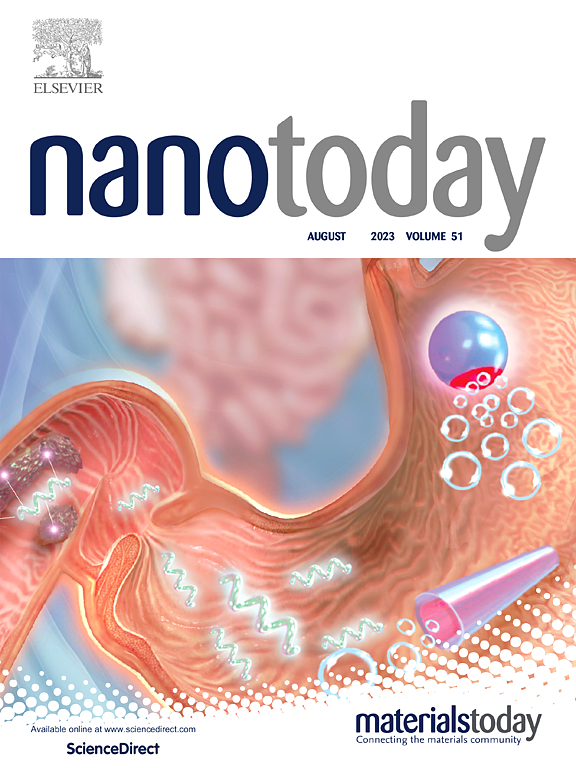给药途径推荐的简明器官选择性mRNA转染(ACCOST)由环二硫醚引发的短聚亚胺
IF 13.2
1区 材料科学
Q1 CHEMISTRY, MULTIDISCIPLINARY
引用次数: 0
摘要
mRNA技术在解决一系列疾病方面有着巨大的希望。要实现mRNA治疗的广泛临床应用,需要将mRNA有效转染到特定器官。在这里,我们介绍了一种环二硫化物引发的短聚亚胺(CD-PEI)聚合物,该聚合物在体内展示了给药途径推荐的简明器官选择性mRNA转染(ACCOST)。PEI聚合物上的环二硫基团促进巯基介导的胞质mRNA传递和不同类型细胞(包括难以转染的免疫细胞)的高转染。值得注意的是,CD-PEI-mRNA复合物分别通过腹腔注射、皮下注射、鞘内注射和静脉注射在胰腺、淋巴结、脑/脊髓和脾脏中实现了近100% %的器官特异性转染,在非靶器官中的积累可以忽略不计。静脉注射妊娠小鼠导致胎盘选择性表达mRNA。脾脏靶向可能是通过红细胞劫持机制发生的,在小鼠B16-OVA模型中,全身注射mRNA疫苗可产生强大的抗原特异性抗肿瘤免疫。因此,我们的ACCOST技术提出了一种器官特异性mRNA转染的新策略。本文章由计算机程序翻译,如有差异,请以英文原文为准。
Administration route-commended concise organ-selective mRNA transfection (ACCOST) by cyclic disulfide-primed short polyethylenimine
mRNA technology holds great promise for addressing a spectrum of diseases. Achieving widespread clinical utility of mRNA therapeutics requires effective transfection of mRNA to specific organs. Here we introduce a cyclic disulfide-primed short polyethyleneimine (CD-PEI) polymer that demonstrates administration route-commended concise organ-selective mRNA transfection (ACCOST) in vivo. The cyclic disulfide groups on the PEI polymer facilitate thiol-mediated cytosolic mRNA delivery and high transfection of different types of cells including hard-to-transfect immune cells. Remarkably, CD-PEI-mRNA complex achieves nearly 100 % organ-specific transfection in pancreas, lymph nodes, brain/spinal cord, and spleen via intraperitoneal, subcutaneous, intrathecal injection, and intravenous injections, respectively, with negligible accumulation in non-target organs. The intravenous injection to pregnant mice results in selective mRNA expression in the placenta instead. The spleen targeting occurs likely via erythrocyte-hijacking mechanism and systemically administered mRNA vaccines elicit robust antigen-specific anti-tumor immunity in murine B16-OVA model. Therefore, our ACCOST technology presents a novel strategy for organ-specific mRNA transfection.
求助全文
通过发布文献求助,成功后即可免费获取论文全文。
去求助
来源期刊

Nano Today
工程技术-材料科学:综合
CiteScore
21.50
自引率
3.40%
发文量
305
审稿时长
40 days
期刊介绍:
Nano Today is a journal dedicated to publishing influential and innovative work in the field of nanoscience and technology. It covers a wide range of subject areas including biomaterials, materials chemistry, materials science, chemistry, bioengineering, biochemistry, genetics and molecular biology, engineering, and nanotechnology. The journal considers articles that inform readers about the latest research, breakthroughs, and topical issues in these fields. It provides comprehensive coverage through a mixture of peer-reviewed articles, research news, and information on key developments. Nano Today is abstracted and indexed in Science Citation Index, Ei Compendex, Embase, Scopus, and INSPEC.
 求助内容:
求助内容: 应助结果提醒方式:
应助结果提醒方式:


